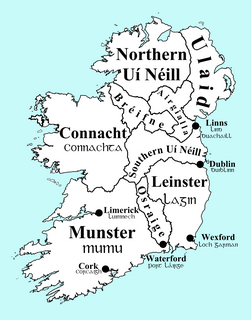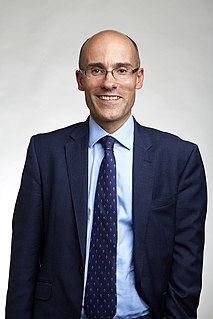This page is based on this
Wikipedia article Text is available under the
CC BY-SA 4.0 license; additional terms may apply.
Images, videos and audio are available under their respective licenses.
Brennan is an Irish surname which is an Anglicised form of two different Irish language surnames—Ó Braonáin and Ó Branáin. Historically, one source of the surname was the prominent clan Ua Braonáin (O'Brennan) of Uí Duach (Idough) in Osraige who were a junior Dál Birn sept stemming from a younger son of Cerball mac Dúnlainge (d.888). Recent surname evaluations highlighted the geographic consistency of this lineage in the barony of Idough.
Lucy is an English and French feminine given name derived from Latin masculine given name Lucius with the meaning as of light. Alternative spellings are Luci, Luce, Lucie.
Murray is both a Scottish and an Irish surname with two distinct respective etymologies. The Scottish version is a common variation of the word Moray, an anglicisation of the Medieval Gaelic word Muireb ; the b here was pronounced as v, hence the Latinization to Moravia. These names denote the district on the south shore of the Moray Firth, in Scotland. Murray is a direct transliteration of how Scottish people pronounce the word Moray. The Murray spelling is not used for the geographical area, which is Moray, but it became the commonest form of the surname, especially among Scottish emigrants, to the extent that the surname Murray is now much more common than the original surname Moray. See also Clan Murray.
Seymour is an English-language surname. Notable individuals with this surname include:

The surname Cox is of English or Welsh origin, and may have originated independently in several places in Great Britain, with the variations arriving at a standard spelling only later. There are also two native Irish surnames which were anglicised into Cox.
Paterson is a Scottish and Irish surname meaning "Fathers' son" or "son of Patrick". In Connacht, and Ulster, the name is considered to be an Anglicised form of the Irish language surname Ó Casáin. Paterson is rarely used as a given name. There are other spellings, including Patterson. Notable people with the surname include:
Brett derives from a Middle English surname meaning "Briton" or "Breton", referring to the Celtic people of Britain and Brittany, France. Brette can be a feminine name.
Bell is a surname common in English speaking countries with several word-origins.
Allen is a Celtic surname, originating in Scotland, and common in Ireland, Wales and England. It is a variation of the surname MacAllen and may be derived from two separate sources: Ailin, in Scottish and Irish Gaelic, means both "little rock" and "harmony", or it may also be derived from the Celtic Aluinn, which means "handsome". Variant spellings include Alan, Allan, etc. The noble family of this surname, from which a branch went to Portugal, is descended of one Alanus de Buckenhall.
Cameron is a Scottish surname and thus somewhat common throughout the English-speaking world.
Millar is a surname. Notable people with the surname include:
Scott is a surname of Scottish origin. It is first attributed to Uchtredus filius Scoti who is mentioned in the charter recording in the foundation of Holyrood Abbey and Selkirk in 1120 and the border Riding clans who settled Peebleshire in the 10th century and the Duke of Buccleuch.

Lindsay or Lindsey is an English surname, originally derived from the territory of Lindsey in Lincolnshire, from the Old English toponym Lindesege, i.e. "marshlands of Lincoln".
The surname Hurley has become the English version of at least three distinct original Irish names: the Ó hUirthile, part of the Dál gCais tribal group, based in Clare and North Tipperary; the Ó Muirthile, from the environs of Kilbrittain in west Cork; and the Ó hIarlatha, from the district of Ballyvourney, also in Cork, whose name is more usually anglicised "(O')Herlihy". The principal concentrations of Hurleys are today found in counties Tipperary and Limerick, where they spread from the original Dalcassian homeland, and in Cork. An interesting example of the pseudo-translation of surnames is found in Clare, where some whose name was originally Hurley have now adopted the surname "Commane", since the Irish for the hurley-stick used in the sport of hurling is camán while the name "Commane" does not originate from that source.

Kelly is a surname in the English language. The name has numerous origins. In some cases it is derived from toponyms located in Ireland and Great Britain, in other cases it is derived from patronyms in the Irish language.
Norman is both a surname and a given name. The surname has multiple origins including English, Irish, Scottish, German, Norwegian, Ashkenazi Jewish and Jewish American. The given name Norman is mostly of English origin, though in some cases it can be an Anglicised form of a Scottish Gaelic personal name.
McEvoy is a surname of Irish origin. Notable people with the surname include:
Clarke is an Anglo-Irish surname which means "clerk". The surname is of English and Irish origin but the original word comes from Latin for clericus. There are some surname variants, including the Clerk and Clark which predates Clarke by over 700 years. Clarke is also uncommonly chosen as a given name.
Randles is a surname which may refer to:




